The Roger Stone Indictment Poses a Major Legal Threat to Trump
Unfortunately for both the defendant and the president, the indictment is a significant milestone in the Mueller probe.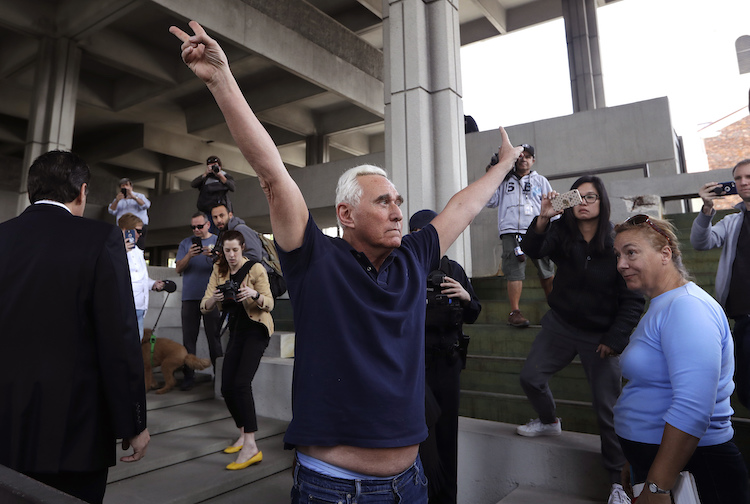 Former Trump campaign adviser Roger Stone leaves the federal courthouse on Friday following a hearing pertaining to his arrest that day in Fort Lauderdale, Fla. (Lynne Sladky / AP)
Former Trump campaign adviser Roger Stone leaves the federal courthouse on Friday following a hearing pertaining to his arrest that day in Fort Lauderdale, Fla. (Lynne Sladky / AP)
It’s hard to see Roger Stone as the victim of prosecutorial overreach, as some on the right claim, even in the aftermath of Stone’s dramatic predawn arrest last Friday by a heavily armed FBI tactical response team.
Now white-haired and 66 years old, the longtime Republican political consultant, confidant to President Donald Trump and self-described “dirty trickster” was hauled into a Fort Lauderdale courtroom after being taken into custody. Shackled at the waist and wrists, he listened as a federal magistrate informed him he had been indicted by a grand jury under the direction of Justice Department special counsel Robert Mueller for obstruction of justice, witness tampering and lying to Congress.
Ever arrogant and defiant, Stone emerged later on the courthouse steps after posting bail of $250,000. Arms raised in a Nixon-style victory salute, he proclaimed his innocence and denounced the case against him as politically motivated. He maintained the charges “relate in no way to Russian collusion … or any other crime in connection with the 2016 [presidential] campaign.”
As the crowd that had gathered to hear Stone’s remarks chanted “Lock him up,” Stone vowed never to turn against the president, declaring, “There is no circumstance whatsoever under which I will bear false witness against the president, nor will I make up lies to ease the pressure on myself.”
Over the weekend, Stone took his defense to television and the internet, lambasting Mueller for what he termed are “manufactured process crimes.” In an interview on Sunday with ABC’s George Stephanopoulos, he called the indictment against him “thin as piss on a rock.”
Stone’s arraignment is set for Tuesday morning in Washington, D.C., where his trial will be held.
Donald Trump, for his part, has cheered Stone on from the safety of the sidelines. On Friday, after news of the indictment broke, he took to Twitter to condemn Stone’s prosecution as part of the “Greatest Witch Hunt in the History of our Country!” and to insist once again that there was “NO COLLUSION!” On Saturday, he tweeted that if Stone can be prosecuted for lying, so too should Hillary Clinton, James Comey and “soooo many others.”
Unfortunately for both Stone and Trump, the indictment is a major milestone in the Mueller probe. It poses a substantial legal threat not only to Stone but to the president as well.
Here are six incriminating takeaways that explain why:
- The indictment lays out an almost irrefutable case against Stone.
To understand the strength of Mueller’s position, it’s necessary to do something very un-Trumpian and read through the entire 24-page indictment filed against Stone.
The indictment sets forth in meticulous detail the many lies Stone told in his testimony to the House Intelligence Committee in September 2017.
Stone was called before the committee to discuss his contacts with WikiLeaks and its founder Julian Assange during the presidential campaign. The committee was especially interested in learning if Stone had attempted to get advance notice from Assange about WikiLeaks’ plans for releasing the emails that had been hacked from the accounts of the Democratic National Committee (DNC) and Clinton campaign chairman John Podesta.
Among other false statements, according to the indictment, Stone told the committee he had no documents, emails or text messages related to those efforts.
In fact, Stone had dozens of emails and text messages stored on his phones and computers that confirmed his interactions with both conspiracy theorist Jerome Corsi (referred to in the indictment as “Person 1”) and radio personality Randy Credico (“Person 2”), whom Stone believed had access to Assange.
Although Stone left his position as a Trump campaign adviser in August 2015, he remained a dedicated Trump loyalist. His purpose in pursuing Corsi and Credico was to establish himself as an indispensable intermediary between the campaign and WikiLeaks. According to the indictment, senior campaign officials welcomed and encouraged the undertaking.
Stone’s interactions with Credico, who had interviewed Assange in 2016, are particularly damning. Stone told the committee that while he had gotten information about WikiLeaks from Credico, he never asked Credico to contact Assange on his behalf.
The written communications between Stone and Credico tell a different story. In both texts and emails sent to Credico in September 2016, Stone explicitly requested Credico to reach out to Assange to get dirt on Clinton, including emails related to her tenure as secretary of state.
Worse still, when Credico was invited to appear before the House Intelligence Committee in November 2017, Stone pressured him not to contradict Stone’s own congressional testimony. Although Credico pleaded the Fifth Amendment in front of the committee, he was eventually interviewed by the FBI in 2018. All the while, Stone kept urging Credico not to talk, calling him a “rat” and a “stoolie” and even threatening to steal Credico’s fluffy little therapy dog, Bianca, if he told the truth about their relationship.
The threats failed. In September 2018, Credico testified before Mueller’s grand jury, with Bianca by his side.
Unless Stone changes course and decides to strike a deal with Mueller, it’s hard to see him avoiding conviction and doing serious prison time.
- The indictment is all about collusion.
The term “collusion” as used in connection with the Mueller probe is a broad catch-all that embraces both criminal acts amounting to a conspiracy with Russian agents as well as non-criminal acts aimed at forging working relationships and coordination. The term derives from the May 2017 Justice Department order that appointed Mueller to investigate “(i) any links and/or coordination between the Russian government and individuals associated with the campaign of President Donald Trump; and (ii) any matters that arose or may arise directly from the investigation.”
Like Stone’s protestations of innocence, the contention that the indictment has nothing to do with collusion is dubious at best.
In addition to cataloging Stone’s quest to set himself up as the bridge between the Trump campaign and WikiLeaks, the indictment describes the campaign’s enthusiastic endorsement and proactive encouragement of Stone’s efforts. As paragraph 12 of the indictment alleges:
“After the July 22, 2016, release of stolen DNC emails by Organization 1 [WikiLeaks], a senior Trump Campaign official was directed to contact STONE about any additional releases and what other damaging information Organization 1 had regarding the Clinton Campaign. STONE thereafter told the Trump Campaign about potential future releases of damaging material by Organization 1.”
This is collusion and attempted coordination in black and white. It may also be part of a larger criminal conspiracy.
Last July, in a 29-page indictment, Mueller charged 12 Russian intelligence officers with hacking the DNC’s and Podesta’s emails and conspiring “to interfere with the 2016 U.S. presidential election.” Paragraph 44 of the July indictment alleges that as part of their scheme, the Russian agents wrote to a “U.S. person … who was in regular contact with senior members of the presidential campaign of Donald J. Trump” to offer their assistance. As Stone acknowledged the day after the indictment was issued, he in all likelihood is that person.
That fact alone doesn’t make Stone a conspirator, either as a principal or as an accessory after the fact to the hacking, but it doesn’t mean he won’t be charged with conspiracy in the future, as Mueller’s case against him builds. The special prosecutor has a well-established track record of filing superseding indictments. Just ask Paul Manafort.
- Stone will not be pardoned.
Asked by a reporter Friday whether he’s seeking a pardon from the president, Stone responded like a person auditioning for a reprieve, remarking, “I am one of [Trump’s] oldest friends. I am a fervent supporter of the president. I think he is doing a great job of making America great again.”
Asked again if he expected a pardon, Stone was coy and evasive, quipping, “The only person I have advocated a pardon for is Marcus Garvey.”
Whatever his true expectations or hopes, it isn’t likely that Trump will pardon Stone, at least not preemptively in the fashion that President Gerald Ford pardoned Richard Nixon for his involvement in Watergate.
Although the president has the legal authority to pardon Stone and others accused of committing federal crimes, Trump has been devastated politically as a result of his gross mismanagement of the just-ended government shutdown. Not only have his approval ratings tanked, but his incompetence as a negotiator has been exposed after he was thoroughly humiliated by the Democrats and House Majority Leader Nancy Pelosi. There may be more tweets and bombast but little concrete action to rescue Stone or anyone else indicted in the Russia investigation.
- Trump may be Mueller’s next target.
In a news conference on July 27, 2016, at his golf course in Doral, Fla., Trump shocked the world when he seemed to encourage the hacking of Clinton’s emails, saying, “Russia, if you’re listening, I hope you’re able to find the 30,000 emails that are missing.”
Later that same day, as Mueller subsequently alleged in the Russian hacking indictment, Russian agents tried to penetrate Clinton’s email server. Did they act at Trump’s behest, or just by coincidence?
Although we’re still a long way from receiving an answer to that question, paragraph 12 of the Stone indictment avers that someone at the top directed the Trump campaign to work with Stone on his outreach to WikiLeaks. That person is unnamed, but only for the time being. If the person turns out to be Trump himself, he could well be Mueller’s next target.
- The Stone indictment will increase the calls for impeachment.
Under existing Justice Department policy, sitting presidents may not be indicted. Although it is likely that Mueller will follow this policy and refrain from charging Trump with a crime, he is free to recommend impeachment.
Impeachment is a political process, and it is not limited to indictable offenses. As Alexander Hamilton wrote in Federalist Paper 65, impeachment extends to serious violations of “the public trust.”
In a column published last week, Tom McCarthy, the Guardian’s national affairs correspondent, highlighted a tweet by Jerry Nadler (D-N.Y.), the new chairman of the House Judiciary Committee, which would initiate any attempt to impeach Trump. Echoing the central inquiry of Watergate, Nadler asked: “Roger Stone, Paul Manafort, Michael Cohen, Rick Gates, Michael Flynn. … What did the President know and when did he know it?”
McCarthy also cited a tweet from former federal prosecutor and CNN legal analyst Renato Mariotti about the Stone indictment: “Today’s indictment makes clear that Roger Stone had something to hide. He desperately tried to hide his efforts to coordinate with WikiLeaks from Congress and the public. Why does Donald Trump care so much about ensuring that Stone doesn’t flip? What does *he* have to hide?”
An impeachment proceeding may be the only way to find out.
- In the end, it’s all about the lies.
In the final analysis, we have to ask, along with Nadler and Mariotti, if there was no collusion or conspiracy, why have Trump and so many of his closest aides and advisers lied repeatedly about the 2016 campaign? The indictment of Roger Stone moves us one step closer to the truth.
Your support matters…
Independent journalism is under threat and overshadowed by heavily funded mainstream media.
You can help level the playing field. Become a member.
Your tax-deductible contribution keeps us digging beneath the headlines to give you thought-provoking, investigative reporting and analysis that unearths what's really happening- without compromise.
Give today to support our courageous, independent journalists.
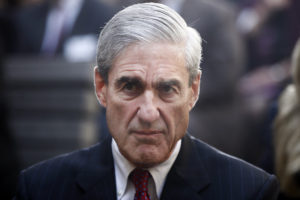
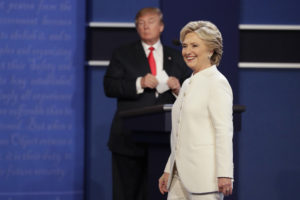
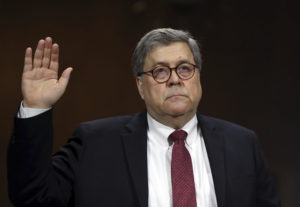
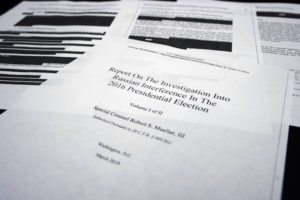
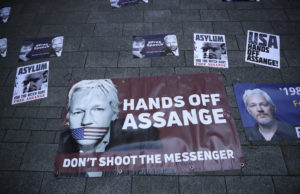

You need to be a supporter to comment.
There are currently no responses to this article.
Be the first to respond.